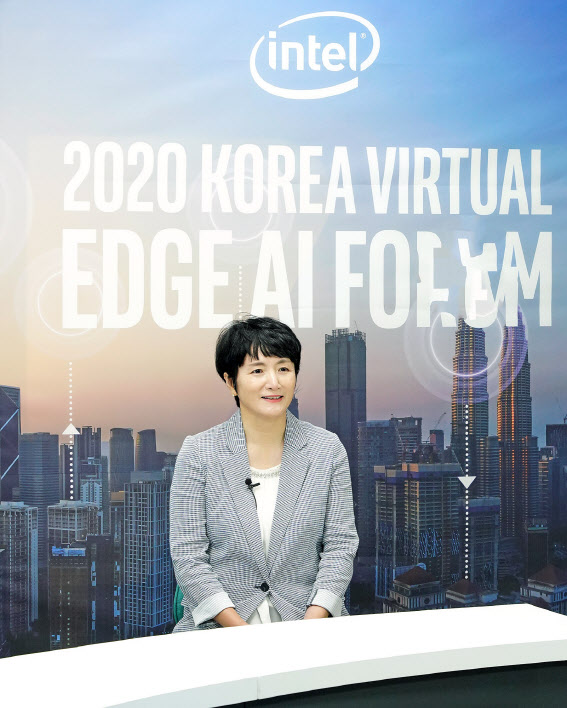
Intel has showed off four successes cases in various industries where its edge artificial intelligence (AI) solution was applied in a virtual forum in South Korea on Wednesday.
The solutions was applied in companies in the military, software, manufacturing and sensor industries.
Hanwha Techwin launched a network video recorder that uses Intel’s Xeon processors in 2018. In April, the military and security firm launched three new AI cameras. It is planning to launch a new network video recorder that uses Apollo Lake and 8th generation Intel core processor.
The cameras launched in April removes useless movement animations and detect key information such as people, face, cars, car registration numbers and other subjects, allowing only meaningful data to be saved, Hanwha said. Car registration number videos recognize multiple languages using metadata and operators can search for the number they want only using key words, they said.
The cameras can also send warning to those who aren’t wearing a face mask __ in light of COVID-19 __ by detecting the number of people, the gender of each person, the color of their clothes and by checking whether they are wearing a mask or not, the company said. The service was in high demand from US and Europe, Hanwha said.
Funzin CEO Kim Deuk-hwa said it plans to apply an autonomous farm machinery controller to a product manufactured by Daedong. Daedong was currently developing smart farm machines that uses monitoring and high precision autonomous technology. The machines will analyze soil samples and plant conditions, and their application is projected to increase yield rates by 14.5%, cut labor cost by 60% and total cost by 20% to 30%, Daedong said.
Daedong added that previous farm machinery lacked sensing abilities but it will use Intel’s OpenVINO tool kit to apply vision computing on the machines. It plans to apply edge cloud, Apollo Lake CPU and 3D depth camera to maximize the autonomy and productivity of its tractors and combine harvesters.
Infared sensor maker i3system showcased its infared camera that used Intel’s target recognition and distant tracking algorithms that helped it overcome many physical limitations, CEO Chung Han said. Previous cameras couldn’t measure temperatures when there were multiple people in the same space but Intel’s solution helped the company overcome this, Chung said.
Intel also said it was working to protect the global coral reef ecosystem with Accenture and various environment protection agencies. Its AI technology secured from acquiring Movidius will be applied on cameras that will be installed under the ocean for this, the company said.
Edge AI will bring about cost reduction and increase efficiency and autonomous cars, pedestrian safety, bar code reading, data centers, robotics, construction and manufacturing, the US chip giant said. It had the lead in edge AI portfolio and will foster the ecosystem, the company said.
Intel Korea CEO Kwon Myung-sook said edge AI will also help with remote work, smart city and bring about a safer society in light of the COVID-19 pandemic.

